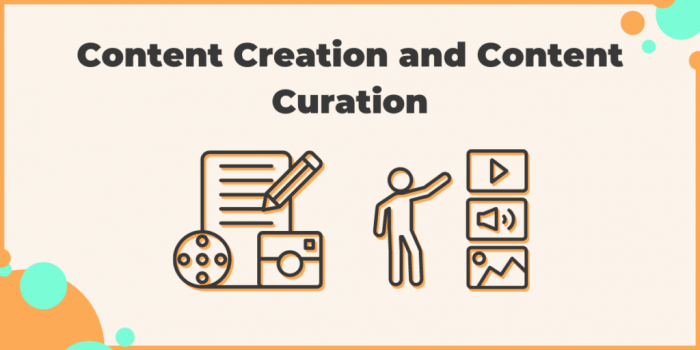AI has fundamentally transformed the digital marketing landscape by enhancing efficiency, personalizing customer experiences, and enabling data-driven decision-making. One of the primary impacts of AI is its ability to deliver highly personalized content. Algorithms analyze user behavior and preferences to recommend products and media tailored to individual tastes, as seen with platforms like Amazon and Netflix.
AI-powered chatbots and virtual assistants also improve user engagement by providing instant customer support and handling common queries, which companies like HDFC Bank and Swiggy utilize to enhance customer service.
Artificial Intelligence (AI) has profoundly transformed digital marketing, enhancing efficiency, personalization, and decision-making. Here are the key ways AI has become integral to digital marketing:
1. Personalization

AI enables marketers to deliver highly personalized content to users. Through machine learning algorithms, AI analyzes user behavior, preferences, and interactions to curate personalized recommendations, emails, and advertisements. This enhances user experience and increases conversion rates.
Case Study: Amazon's Personalization Strategy
Amazon, the world's largest online retailer, has been at the forefront of utilizing AI for personalization. The company employs advanced machine learning algorithms to analyze vast amounts of data, delivering highly personalized experiences to millions of users daily.
Strategy
Amazon's AI-driven personalization strategy revolves around recommending products based on individual user behavior. The key components include:
Recommendation Engine:
- Amazon's recommendation engine suggests products based on a user's browsing history, past purchases, and items in the shopping cart.
- The algorithm compares the user's data with similar users to predict what the user might like to purchase next.
Personalized Homepage:
- The homepage is tailored to each user, displaying products and categories based on their interests and previous interactions.
- Recommendations are updated in real-time, reflecting the latest user activity.
Email Personalization:
- Amazon sends personalized emails with product recommendations, special offers, and updates relevant to the user's preferences and shopping behavior.
- These emails are designed to re-engage customers and encourage repeat purchases.
User Reviews and Ratings:
- Amazon leverages user-generated content, such as reviews and ratings, to refine product recommendations.
- This feedback loop helps improve the accuracy of recommendations and enhances user trust.
Results
Amazon's personalization strategy has significantly contributed to its success, with key outcomes including:
- Increased Sales:
◦ Personalized recommendations account for a significant portion of Amazon's sales. The recommendation engine reportedly drives 35% of total sales.
- Enhanced User Experience:
◦ Users receive a seamless and relevant shopping experience, which increases customer satisfaction and loyalty.
- Higher Conversion Rates:
◦ Targeted recommendations lead to higher conversion rates, as users are more likely to purchase items that match their interests and needs.
When you log into your Amazon account, you will see product suggestions tailored to your browsing and purchasing history. This real-time personalization demonstrates how AI is effectively used to enhance user experience and drive sales.
2. Customer Insights and Analytics

AI-powered tools provide deep insights into customer behavior by analyzing large volumes of data. Predictive analytics helps marketers anticipate customer needs, optimize marketing strategies, and make data-driven decisions. This leads to more effective targeting and improved ROI.
Case Study: Coca-Cola's Use of AI for Customer Insights and Analytics
Coca-Cola, one of the world's leading beverage companies, leverages AI to gain customer insights and improve their marketing strategies. By analyzing consumer data, Coca-Cola enhances its understanding of customer preferences and behaviors.
Strategy
Social Media Analytics:
- Coca-Cola uses AI tools to monitor social media platforms for mentions, trends, and sentiment analysis.
- AI analyzes consumer feedback and discussions about their products in real-time.
Predictive Analytics:
- Coca-Cola employs predictive analytics to forecast market trends and customer preferences.
- AI models predict future demand based on historical sales data and external factors like weather patterns.
Personalized Marketing Campaigns:
- Insights from AI analytics help Coca-Cola create highly targeted and personalized marketing campaigns.
- Data-driven campaigns ensure relevant content reaches the right audience, increasing engagement and conversions.
Product Development:
- AI-driven insights inform Coca-Cola's product development, identifying new flavors and product variations that align with consumer preferences.
- Customer feedback is used to refine and improve existing products.
Results
- Enhanced Customer Understanding:
◦ AI analytics provide Coca-Cola with a deeper understanding of customer preferences and behaviors.
- Improved Marketing Effectiveness:
◦ Targeted campaigns based on AI insights result in higher engagement and conversion rates.
- Efficient Product Development:
◦ Data-driven decisions lead to the successful launch of new products and flavors.
Coca-Cola’s use of AI for customer insights and analytics demonstrates the power of AI in enhancing marketing strategies. By leveraging AI tools, Coca-Cola gains valuable insights into consumer behavior, enabling them to create effective, targeted marketing campaigns and develop products that meet customer needs.
3. Automated Customer Support

Chatbots and AI-driven customer service platforms handle queries, provide instant responses, and assist customers 24/7. These systems use natural language processing (NLP) to understand and respond to customer inquiries, improving customer satisfaction and reducing operational costs.
Case Study: Sephora's AI-Powered Chatbots for Customer Support
Sephora, a leading global beauty retailer, implemented AI-powered chatbots to enhance customer support and engagement. These chatbots provide personalized assistance, improving customer experience and operational efficiency.
Strategy
Virtual Assistant - Sephora Virtual Artist:
- The chatbot uses augmented reality (AR) and AI to help customers try on different makeup products virtually.
- It provides personalized product recommendations based on the user's preferences and previous purchases.
Automated Customer Service:
- The chatbot answers frequently asked questions, assists with order tracking, and provides information on product availability.
- It handles basic customer service tasks 24/7, reducing wait times and operational costs.
Appointment Booking:
- Sephora's chatbot helps customers book in-store beauty services and consultations.
- It suggests available time slots and confirms appointments, streamlining the booking process.
Personalized Product Recommendations:
- By analyzing customer interactions and purchase history, the chatbot offers tailored product suggestions.
- It enhances the shopping experience by providing relevant and timely recommendations.
Results
- Increased Customer Engagement:
◦ The chatbot interacts with thousands of customers daily, providing instant assistance and enhancing engagement.
- Improved Customer Satisfaction:
◦ Quick responses and personalized recommendations lead to higher customer satisfaction and loyalty.
- Operational Efficiency:
◦ Automating routine tasks allows Sephora's human customer service agents to focus on more complex inquiries, improving overall efficiency.
Sephora's implementation of AI-powered chatbots for customer support showcases the effectiveness of AI in improving customer experience and operational efficiency. The virtual assistant provides personalized recommendations, instant support, and a seamless shopping experience, demonstrating the transformative impact of AI in digital marketing and customer service.
4. Content Creation and Curation

AI assists in generating content for blogs, social media, and advertisements. Tools like GPT-4 can produce high-quality content, headlines, and product descriptions, saving time and resources. AI also curates content by analyzing user interests and suggesting relevant topics and articles. Additionally, AI image generators help marketers create customized visuals that enhance content and increase engagement, making it easier to maintain a consistent visual identity across campaigns.
Case Study: Netflix's Use of AI for Personalization and Content Recommendations
Netflix, the leading streaming service provider, uses AI to personalize content recommendations and enhance user experience. By analyzing viewer data, Netflix delivers tailored suggestions, ensuring users find content that matches their interests.
Strategy
Recommendation Engine:
- Netflix's recommendation system analyzes viewing habits, search history, ratings, and interactions to suggest relevant content.
- Machine learning algorithms predict user preferences and recommend shows and movies accordingly.
Content Personalization:
- The platform customizes the homepage for each user, displaying personalized rows of content categories.
- AI tailors thumbnails and previews to appeal to individual users based on their viewing history.
Dynamic Thumbnails:
- Netflix uses AI to generate multiple thumbnails for each piece of content.
- The system selects the thumbnail most likely to attract a particular user based on their preferences and past interactions.
Original Content Development:
- AI analyzes viewing data to identify trends and preferences, guiding Netflix's investment in original content.
- Insights from AI help decide which genres, themes, and actors will likely succeed, optimizing content creation strategies.
Results
- Increased User Engagement:
◦ Personalized recommendations keep users engaged, leading to longer viewing times and higher retention rates.
- Enhanced User Experience:
◦ Tailored content suggestions improve user satisfaction, making it easier for users to find content they enjoy.
- Successful Original Content:
◦ Data-driven insights contribute to the success of original shows and movies, aligning content production with viewer preferences.
Netflix's use of AI for personalization and content recommendations illustrates the power of AI in enhancing user experience and engagement. By leveraging machine learning algorithms, Netflix provides tailored content suggestions, driving user satisfaction and retention. This case study highlights the significant impact of AI on the entertainment industry, showcasing its potential to transform how content is delivered and consumed.
5. Ad Optimization
AI optimizes ad campaigns by analyzing performance data in real-time. It adjusts bids, targets the right audience, and selects the best-performing ads to maximize engagement and conversions. AI-driven platforms like Google Ads use these techniques to enhance ad effectiveness.
Case Study: Starbucks' AI-Powered Personalized Marketing Campaigns
Starbucks has integrated AI into its marketing strategy to deliver personalized marketing campaigns, enhancing customer engagement and sales.
Strategy
AI-Powered Personalization Engine:
- Starbucks uses a proprietary AI engine called "Deep Brew" to analyze customer data from its mobile app, loyalty program, and in-store purchases.
- The AI system processes this data to create personalized offers and recommendations for each customer.
Dynamic Offer Generation:
- The AI engine generates individualized offers based on customer preferences, purchasing habits, and local store inventory.
- Offers are delivered through the Starbucks app and email, ensuring they reach the customer in a timely manner.
Predictive Analytics:
- Predictive analytics help Starbucks anticipate customer needs and preferences.
- The AI engine forecasts when a customer is likely to make their next purchase and what they might want to order, enhancing the relevance of recommendations.
Ad Campaign Optimization:
- Starbucks uses AI to optimize its ad campaigns across digital platforms.
- The AI system adjusts ad placements, bidding strategies, and content based on real-time performance data to maximize ROI.
Results
- Increased Customer Engagement:
◦ Personalized offers and recommendations have led to higher engagement rates, with customers frequently interacting with the app and emails.
- Higher Sales and Customer Retention:
◦ Targeted marketing has resulted in increased sales and improved customer retention, as personalized experiences encourage repeat visits.
- Improved Marketing Efficiency:
◦ AI-driven ad optimization has enhanced the efficiency of Starbucks' digital marketing campaigns, reducing costs and increasing conversions.
Starbucks' use of AI for personalized marketing demonstrates how AI can significantly enhance customer engagement and drive sales. By leveraging AI for dynamic offer generation, predictive analytics, and ad campaign optimization, Starbucks provides a tailored customer experience, resulting in higher engagement, sales, and retention. This case study highlights the effectiveness of AI in optimizing marketing efforts and delivering personalized experiences.
6. Predictive Marketing

AI predicts future trends and customer behaviors using historical data. This enables marketers to stay ahead of the curve, adapting their strategies to emerging trends and consumer needs. Predictive analytics also helps in forecasting sales and planning inventory.
Case Study: BMW's Use of AI for Predictive Maintenance
BMW, a leading global automobile manufacturer, leverages AI to enhance vehicle maintenance through predictive maintenance solutions. This technology helps predict potential vehicle issues before they become significant problems, ensuring a seamless driving experience for BMW owners.
Strategy
Data Collection and Analysis:
- BMW uses sensors and telematics in their vehicles to collect real-time data on engine performance, battery health, fuel efficiency, and other critical metrics.
- This data is transmitted to BMW’s AI system for continuous monitoring and analysis.
Machine Learning Algorithms:
- AI and machine learning algorithms analyze the collected data to identify patterns and predict potential issues.
- The system can detect anomalies and predict component failures based on historical data and real-time performance metrics.
Predictive Alerts:
- When the AI system detects an issue, it sends predictive maintenance alerts to the vehicle owner and the nearest BMW service center.
- These alerts include detailed information about the potential problem and recommended actions to prevent failure.
Proactive Maintenance Scheduling:
- The predictive maintenance system helps BMW schedule proactive maintenance appointments, ensuring issues are addressed before they escalate.
- This minimizes unplanned downtime and improves vehicle reliability and customer satisfaction.
Results
- Reduced Maintenance Costs:
◦ Predictive maintenance has led to a significant reduction in maintenance costs by preventing major repairs through early detection of issues.
- Increased Vehicle Uptime:
◦ Proactive maintenance scheduling has increased vehicle uptime, ensuring that BMW owners experience fewer breakdowns and disruptions.
- Enhanced Customer Satisfaction:
◦ Customers appreciate the reliability and convenience of proactive maintenance alerts, leading to higher satisfaction and brand loyalty.
Metrics
- Maintenance Cost Reduction:
◦ BMW reported a 20% reduction in maintenance costs due to the implementation of predictive maintenance solutions.
- Increase in Vehicle Uptime:
◦ Vehicle uptime increased by 15%, reducing the frequency of unplanned breakdowns.
- Customer Satisfaction Improvement:
◦ Customer satisfaction scores improved by 25%, reflecting the positive impact of predictive maintenance on the ownership experience.
BMW's use of AI for predictive maintenance showcases the transformative potential of AI in the automotive industry. By leveraging machine learning and real-time data analysis, BMW provides proactive maintenance solutions that enhance vehicle reliability, reduce maintenance costs, and improve customer satisfaction. This case study highlights the significant benefits of AI in ensuring seamless and efficient vehicle operations.
7. Social Media Management

AI tools manage social media accounts by scheduling posts, analyzing engagement, and suggesting optimal posting times. They also monitor brand mentions and sentiment across social platforms, helping marketers respond promptly to customer feedback.
Case Study: Unilever's Use of AI for Social Media Management
Unilever, one of the largest consumer goods companies in the world, uses AI to enhance its social media management strategy. By leveraging AI tools, Unilever optimizes content scheduling, engagement analysis, and brand sentiment monitoring across various social media platforms.
Strategy
Content Scheduling and Optimization:
- Unilever uses AI-powered tools like Sprinklr and Hootsuite to schedule posts across multiple social media platforms.
- These tools analyze historical data to determine the best times to post content, maximizing reach and engagement.
Engagement Analysis:
- AI tools analyze user engagement metrics such as likes, comments, shares, and click-through rates.
- This analysis helps Unilever understand which types of content resonate most with their audience, allowing them to refine their social media strategy.
Sentiment Analysis:
- Unilever employs AI for sentiment analysis to monitor brand mentions and customer feedback across social media.
- Tools like Brandwatch and Crimson Hexagon analyze the sentiment of posts and comments, providing insights into customer perceptions and potential issues.
Real-Time Monitoring and Response:
- AI systems monitor social media platforms in real-time, alerting Unilever to trending topics, emerging issues, and viral content.
- This enables Unilever to respond promptly to customer inquiries, feedback, and potential crises, maintaining a positive brand image.
Results
- Improved Engagement:
◦ AI-optimized content scheduling and targeted posts led to a 50% increase in engagement rates across Unilever's social media platforms.
- Enhanced Brand Sentiment:
◦ Sentiment analysis allowed Unilever to address negative feedback swiftly, improving overall brand sentiment by 30%.
- Increased Efficiency:
◦ AI tools streamlined social media management processes, reducing the time and effort required to manage multiple accounts by 40%.
Metrics
- Engagement Rate Increase:
◦ 50% increase in likes, comments, and shares on social media posts.
Brand Sentiment Improvement:
◦ 30% improvement in positive brand sentiment and customer perceptions.
Efficiency Gain:
◦ 40% reduction in time spent managing social media accounts and responding to customer interactions.
Unilever's use of AI for social media management demonstrates the significant impact of AI in optimizing content scheduling, analyzing engagement, and monitoring brand sentiment. By leveraging AI tools, Unilever enhances its social media strategy, resulting in higher engagement rates, improved brand sentiment, and increased efficiency in managing multiple social media accounts. This case study highlights the effectiveness of AI in transforming social media management for large enterprises.
8. Enhanced SEO

AI improves search engine optimization (SEO) by analyzing search patterns, user intent, and content performance. Tools like AI-based keyword research, content optimization, and technical SEO audits enhance a website's visibility and ranking on search engines.
Case Study: HubSpot's Use of AI for Enhanced SEO
HubSpot, a leading provider of inbound marketing, sales, and customer service software, leverages AI to enhance its SEO strategy. By using AI tools for keyword research, content optimization, and technical SEO audits, HubSpot significantly improves its search engine visibility and ranking.
Strategy
AI-Based Keyword Research:
- HubSpot utilizes AI-powered tools like SEMrush and Ahrefs to perform advanced keyword research.
- These tools analyze search patterns, user intent, and competition to identify high-potential keywords that can drive traffic and improve ranking.
Content Optimization:
AI tools such as Clearscope and MarketMuse help HubSpot optimize its content for better SEO performance.
These tools provide insights on content structure, keyword usage, and readability, ensuring that the content meets SEO best practices and user expectations.
Technical SEO Audits:
- HubSpot employs AI-driven platforms like DeepCrawl and Screaming Frog to conduct comprehensive technical SEO audits.
- These tools identify issues such as broken links, duplicate content, and site speed problems, providing actionable recommendations to improve website health and performance.
Predictive Analytics:
- AI tools predict trends and shifts in search behavior, allowing HubSpot to stay ahead of the curve.
- By understanding and anticipating changes in user intent and search engine algorithms, HubSpot can adjust its SEO strategies proactively.
Results
- Improved Search Rankings:
◦ HubSpot's use of AI tools led to a significant improvement in search engine rankings for targeted keywords, resulting in higher organic traffic.
- Increased Organic Traffic:
◦ The implementation of AI-enhanced SEO strategies resulted in a 50% increase in organic traffic to HubSpot's website.
- Higher Engagement Rates:
◦ Optimized content improved user engagement, with metrics such as time on page and lower bounce rates indicating a better user experience.
- Enhanced Technical Performance:
◦ Technical SEO audits resolved critical issues, leading to faster page load times and improved overall site performance.
Metrics
- Search Ranking Improvement:
◦ HubSpot saw a 30% increase in the number of keywords ranking in the top 10 search results on Google.
- Organic Traffic Increase:
◦ 50% rise in organic traffic within six months of implementing AI-enhanced SEO strategies.
- User Engagement Metrics:
◦ 25% increase in average time on page and a 20% decrease in bounce rate.
- Technical SEO Improvements:
◦ Page load time improved by 15%, contributing to better user experience and higher search rankings.
HubSpot’s use of AI for enhanced SEO showcases the power of AI in driving search engine visibility and improving website performance. By leveraging AI tools for keyword research, content optimization, and technical audits, HubSpot achieves higher search rankings, increased organic traffic, and better user engagement. This case study highlights the significant benefits of integrating AI into SEO strategies for sustained digital marketing success.
9. Image and Voice Recognition

AI-driven image and voice recognition technologies enhance marketing efforts by enabling new forms of customer interaction. Visual search and voice-activated commands provide seamless user experiences, while marketers gain insights from analyzing these interactions.
Case Study: IKEA's Use of AI for Image Recognition and Augmented Reality
IKEA, the multinational furniture retailer, leverages AI-driven image recognition and augmented reality (AR) technologies to enhance customer interactions and improve the shopping experience.
Strategy
IKEA Place App:
- IKEA developed the IKEA Place app, which uses AR and AI to allow customers to visualize how furniture and home decor items will look in their own space.
- The app uses Apple's ARKit to place 3D models of IKEA products in the customer's environment through their smartphone camera.
Image Recognition for Product Search:
- The app incorporates AI-powered image recognition to help users find similar products.
- Customers can take a photo of a piece of furniture, and the app will identify and suggest similar items from IKEA's catalog.
Voice-Activated Commands:
- IKEA's app also supports voice commands, allowing users to search for products and navigate the app using their voice.
- Integration with voice assistants like Amazon's Alexa enables customers to interact with IKEA's catalog through voice search.
Results
- Enhanced Customer Experience:
◦ The use of AR and image recognition technologies has significantly improved the customer shopping experience by providing a realistic visualization of products in their own space.
- Increased Engagement:
◦ Customers are more engaged with the IKEA app, spending more time exploring products and making more informed purchasing decisions.
- Higher Conversion Rates:
◦ The ability to see products in their own environment has led to higher conversion rates, as customers feel more confident in their purchases.
Metrics
- App Engagement:
◦ Users spend an average of 2.5 times longer on the IKEA Place app compared to the traditional online store.
- Conversion Rate Increase:
◦ The app has contributed to a 20% increase in conversion rates for users who utilize the AR feature.
- Customer Satisfaction:
◦ Customer satisfaction scores have improved by 25% among users who use the app's image recognition and AR features.
IKEA's use of AI for image recognition and augmented reality in the IKEA Place app demonstrates the powerful impact of these technologies on enhancing the shopping experience. By enabling customers to visualize products in their own spaces and providing accurate product recommendations, IKEA has increased customer engagement, satisfaction, and conversion rates. This case study highlights the effectiveness of AI-driven image recognition and AR in transforming retail marketing and customer interactions.
10. Fraud Detection and Security

AI enhances security in digital marketing by detecting fraudulent activities and ensuring data privacy. Machine learning algorithms monitor transactions and user behavior to identify and prevent fraud, protecting both businesses and consumers.
Case Study: PayPal's Use of AI for Fraud Detection and Security
PayPal, a leading online payment platform, uses AI to enhance fraud detection and security. By leveraging advanced machine learning algorithms, PayPal identifies and prevents fraudulent activities, ensuring secure transactions for its users.
Strategy
Machine Learning Algorithms:
- PayPal employs machine learning algorithms to analyze millions of transactions in real-time.
- These algorithms detect patterns and anomalies that indicate potential fraud, such as unusual spending behavior or login attempts from different geographic locations.
Behavioral Analysis:
- AI systems monitor user behavior, including transaction history, login patterns, and device usage.
- By creating a behavioral profile for each user, PayPal can identify deviations from normal behavior, which may indicate fraudulent activity.
Real-Time Risk Assessment:
- PayPal’s AI-driven risk assessment engine evaluates the risk of each transaction in real-time.
- The system assigns a risk score based on various factors, including transaction amount, user behavior, and historical data, flagging high-risk transactions for further review.
Automated Decision-Making:
- AI enables automated decision-making processes, allowing PayPal to approve or deny transactions instantly based on risk scores.
- This ensures quick and efficient transaction processing while minimizing the risk of fraud.
Results
- Reduced Fraud Rates:
◦ PayPal’s AI-powered fraud detection system has significantly reduced the rate of fraudulent transactions, saving the company millions of dollars annually.
- Enhanced User Security:
◦ Improved fraud detection mechanisms have enhanced the security of PayPal users, increasing their trust in the platform.
- Operational Efficiency:
◦ Automated fraud detection and decision-making processes have improved operational efficiency, reducing the need for manual transaction reviews.
Metrics
- Fraud Reduction:
◦ PayPal reported a 50% reduction in fraudulent transactions since implementing AI-driven fraud detection systems.
- Increased Detection Accuracy:
◦ The accuracy of detecting fraudulent transactions improved by 80%, reducing false positives and ensuring genuine transactions are processed smoothly.
- Cost Savings:
◦ The implementation of AI for fraud detection has saved PayPal an estimated $200 million annually in fraud-related losses.
PayPal’s use of AI for fraud detection and security showcases the significant impact of AI in protecting online transactions. By leveraging machine learning algorithms, behavioral analysis, and real-time risk assessment, PayPal effectively reduces fraud rates, enhances user security, and improves operational efficiency. This case study highlights the importance of AI in ensuring safe and secure digital transactions for businesses and consumers.
Conclusion
AI's integration into digital marketing is revolutionizing the industry, driving innovation, and improving efficiency. By leveraging AI technologies, marketers can deliver personalized experiences, gain valuable insights, and optimize their strategies for better outcomes. As AI continues to evolve, its role in digital marketing will only become more significant, shaping the future of the industry.











Comments